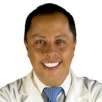As dentistry has grown more focused on biological processes and surgical treatments, the social determinants of health—the conditions in which we are born, grow, live and work—have become less emphasised. To discuss this, Dental Tribune International spoke with Dr Christophe Bedos, associate professor in the Division of Oral Health and Society of McGill University’s Faculty of Dentistry in Montreal in Canada and co-author of a recent article on social dentistry.
Dr Bedos, in your article, you provide a suggested framework for conducting social dentistry. How does this differ from the current attitudes and practices that are prevalent in Western dentistry?
In current Western dentistry, clinicians mainly provide surgical procedures and promote patients’ healthy lifestyles. Social dentistry goes further. Socially engaged dentists—as we termed them in the article—also try to address the social determinants of their patients’ oral health and access to care.
Social dentistry thus implies that, at the individual level, dentists understand the causes of the causes, so to speak, of their patients’ illnesses. For instance, they need to know how patients’ health-related behaviours, such as oral hygiene and diet, can be shaped by their living conditions, such as their job, income, social network and housing. I believe that many dentists nowadays understand the importance of social determinants of health, but it is rare that they try to tackle those determinants. With social dentistry, we invite dentists to conduct upstream interventions, or to prescribe social interventions that address the social determinants of their patients’ oral health.
At the community level, socially engaged dentists try to respond to the specific needs of the local population. This means that they need to know the social, demographic and epidemiological characteristics of their community well, and organise their professional activities accordingly. For instance, in an ageing community, dentists should consider providing mobile services in addition to traditional clinical care. This differs, in my opinion, to what is prevalent in current Western dentistry where dentists are encouraged to work in silos.
At the societal level, socially engaged dentists should be strong advocates of healthy public policies, including addressing poverty and inequalities. In my experience, this is not currently the case.
Is this social perspective being either endorsed or practised in other aspects of healthcare?
In North America, medicine has been much more active than dentistry to promote such approaches. In recent years, for instance, I have observed a growing number of articles promoting social medicine, upstream interventions, structural competency, and critical consciousness. These approaches are even taught in several prestigious universities in the US.
Is it possible for social dentistry to function alongside certain current treatment modalities, such as motivational interviewing, that seek to empower individuals to take charge of their own oral health?
Yes, empowering patients is central to our approach. My colleagues and I have also proposed models of person-centred care that describe the relationship between dentists and their patients. I believe in more balanced relationships and patients’ empowerment.
Thank you very much for the interview.
Editorial note: Dr Bedos’s article, titled “Social dentistry: An old heritage for a new professional approach”, was published online in the British Dental Journal on 24 August 2018 and can be found here.
Tags:
Since 2016, the FDI World Dental Federation and oral health product manufacturer Philips have been partnering to promote World Oral Health Day on 20 March. ...
Interview with Dr. Meshari Al-Otaibi, President, Makkah International Dental Conference, Past General Director of Security Forces Hospital, Makkah, Saudi ...
A behaviourally driven bacterial disease, dental caries is one of the most prevalent primarily preventable conditions in the world. Even in developed ...
Live webinar
Thu. 18 April 2024
4:00 pm UTC (London)
Live webinar
Mon. 22 April 2024
3:00 pm UTC (London)
Prof. Dr. Erdem Kilic, Prof. Dr. Kerem Kilic
Live webinar
Tue. 23 April 2024
6:00 pm UTC (London)
Live webinar
Wed. 24 April 2024
1:00 pm UTC (London)
Dr. Yin Ci Lee BDS (PIDC), MFDS RCS, DClinDent Prosthodontics, Dr. Ghida Lawand BDS, MSc, Dr. Oon Take Yeoh, Dr. Edward Chaoho Chien DDS, DScD
Live webinar
Wed. 24 April 2024
6:00 pm UTC (London)
Live webinar
Thu. 25 April 2024
5:00 pm UTC (London)
Dra. Deborah Martinez LaForest, Dra. Macjorette Larez, Dr. Francisco Castellanos Medina, Dr. Francisco Eraso
Live webinar
Fri. 26 April 2024
5:00 pm UTC (London)



 Austria / Österreich
Austria / Österreich
 Bosnia and Herzegovina / Босна и Херцеговина
Bosnia and Herzegovina / Босна и Херцеговина
 Bulgaria / България
Bulgaria / България
 Croatia / Hrvatska
Croatia / Hrvatska
 Czech Republic & Slovakia / Česká republika & Slovensko
Czech Republic & Slovakia / Česká republika & Slovensko
 Finland / Suomi
Finland / Suomi
 France / France
France / France
 Germany / Deutschland
Germany / Deutschland
 Greece / ΕΛΛΑΔΑ
Greece / ΕΛΛΑΔΑ
 Italy / Italia
Italy / Italia
 Netherlands / Nederland
Netherlands / Nederland
 Nordic / Nordic
Nordic / Nordic
 Poland / Polska
Poland / Polska
 Portugal / Portugal
Portugal / Portugal
 Romania & Moldova / România & Moldova
Romania & Moldova / România & Moldova
 Slovenia / Slovenija
Slovenia / Slovenija
 Serbia & Montenegro / Србија и Црна Гора
Serbia & Montenegro / Србија и Црна Гора
 Spain / España
Spain / España
 Switzerland / Schweiz
Switzerland / Schweiz
 Turkey / Türkiye
Turkey / Türkiye
 UK & Ireland / UK & Ireland
UK & Ireland / UK & Ireland
 International / International
International / International
 Brazil / Brasil
Brazil / Brasil
 Canada / Canada
Canada / Canada
 Latin America / Latinoamérica
Latin America / Latinoamérica
 USA / USA
USA / USA
 China / 中国
China / 中国
 India / भारत गणराज्य
India / भारत गणराज्य
 Japan / 日本
Japan / 日本
 Pakistan / Pākistān
Pakistan / Pākistān
 Vietnam / Việt Nam
Vietnam / Việt Nam
 ASEAN / ASEAN
ASEAN / ASEAN
 Israel / מְדִינַת יִשְׂרָאֵל
Israel / מְדִינַת יִשְׂרָאֵל
 Algeria, Morocco & Tunisia / الجزائر والمغرب وتونس
Algeria, Morocco & Tunisia / الجزائر والمغرب وتونس
 Middle East / Middle East
Middle East / Middle East
:sharpen(level=0):output(format=jpeg)/up/dt/2024/04/Dentists-fear-DIY-tooth-extractions-as-Wales-hikes-NHS-fees.jpg)
:sharpen(level=0):output(format=jpeg)/up/dt/2024/04/UK-health-authorities-urged-to-update-dental-antibiotic-guidelines-for-potential-endocarditis-patients.jpg)
:sharpen(level=0):output(format=jpeg)/up/dt/2024/04/Oral-health-inequalities-remain-a-major-public-health-concern-in-the-UK.jpg)
:sharpen(level=0):output(format=jpeg)/up/dt/2024/03/Dental-students-are-not-exempt-from-risk-of-sharps-injuries.jpg)
:sharpen(level=0):output(format=jpeg)/up/dt/2024/03/Henriette-Lerner.jpg)











:sharpen(level=0):output(format=png)/up/dt/2014/02/Du%CC%88rr_Dental.png)
:sharpen(level=0):output(format=png)/up/dt/2011/07/fdi.png)
:sharpen(level=0):output(format=png)/up/dt/2023/03/ACTEON_NEW-logo_03-2024.png)
:sharpen(level=0):output(format=png)/up/dt/2013/03/LM-Dental.png)
:sharpen(level=0):output(format=png)/up/dt/2024/01/UnionTech-Logo-Hub.png)
:sharpen(level=0):output(format=png)/up/dt/2022/05/osstem_logo.png)
:sharpen(level=0):output(format=jpeg)/up/dt/e-papers/336495/1.jpg)
:sharpen(level=0):output(format=jpeg)/up/dt/e-papers/332768/1.jpg)
:sharpen(level=0):output(format=jpeg)/up/dt/e-papers/328090/1.jpg)
:sharpen(level=0):output(format=jpeg)/up/dt/e-papers/324687/1.jpg)
:sharpen(level=0):output(format=jpeg)/up/dt/e-papers/321656/1.jpg)
:sharpen(level=0):output(format=jpeg)/up/dt/2022/11/DTUK0122_01_Title.jpg)
:sharpen(level=0):output(format=jpeg)/up/dt/2018/09/christohe-bedos.jpeg)

:sharpen(level=0):output(format=jpeg)/up/dt/2024/04/Dentists-fear-DIY-tooth-extractions-as-Wales-hikes-NHS-fees.jpg)
:sharpen(level=0):output(format=gif)/wp-content/themes/dt/images/no-user.gif)
:sharpen(level=0):output(format=jpeg)/up/dt/2018/03/Untitled-10.jpg)
:sharpen(level=0):output(format=jpeg)/up/dt/2018/01/trmieed_.jpg)
:sharpen(level=0):output(format=jpeg)/up/dt/2021/08/placeholder.jpg)







:sharpen(level=0):output(format=jpeg)/up/dt/2024/04/Dentists-fear-DIY-tooth-extractions-as-Wales-hikes-NHS-fees.jpg)
:sharpen(level=0):output(format=jpeg)/up/dt/2024/04/UK-health-authorities-urged-to-update-dental-antibiotic-guidelines-for-potential-endocarditis-patients.jpg)
:sharpen(level=0):output(format=jpeg)/up/dt/2024/04/Oral-health-inequalities-remain-a-major-public-health-concern-in-the-UK.jpg)
:sharpen(level=0):output(format=jpeg)/wp-content/themes/dt/images/3dprinting-banner.jpg)
:sharpen(level=0):output(format=jpeg)/wp-content/themes/dt/images/aligners-banner.jpg)
:sharpen(level=0):output(format=jpeg)/wp-content/themes/dt/images/covid-banner.jpg)
:sharpen(level=0):output(format=jpeg)/wp-content/themes/dt/images/roots-banner-2024.jpg)